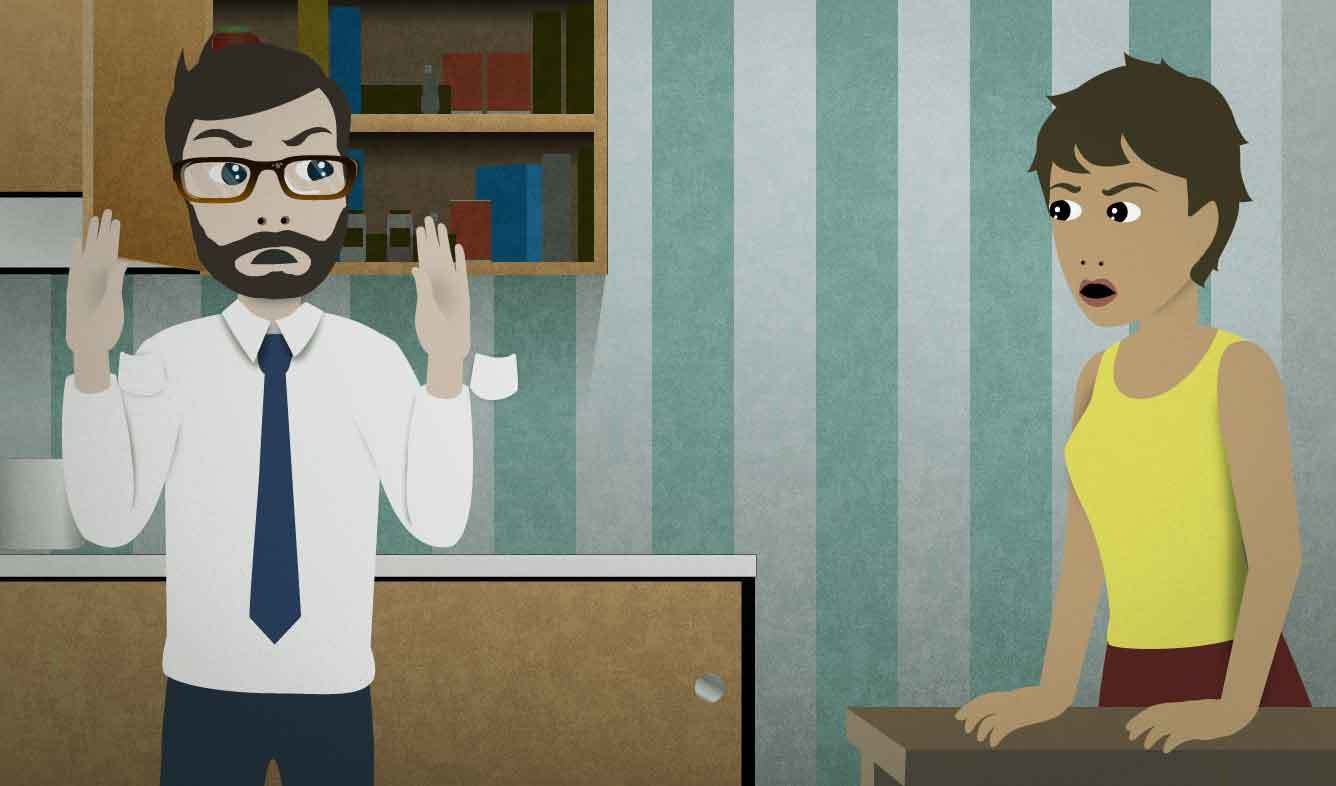“Fine, I'll cook.”
You're tired from work, and so is your wife. She cooked last night, but you cooked the two nights before. After ten minutes of arguing, you give up and unhappily volunteer to cook.
Fine, I'll cook.
Want Video and Sound? Follow us on YouTube

Fine!
People say this word after arguing or debating with someone. This word shows that you're letting the other person win the argument. You're going to do what they say, although you're not happy about it.
Here are some examples:
Fine, I'll cook.
A: Come on, please come with us!
B: OK, fine. But I'm riding in the front seat.
A: I'm sick and tired of this! I'm leaving you!
B: Fine! Leave then!
The stronger you stress the word "fine", the angrier you seem. In the middle of a big argument, you can shut down the discussion by saying "Fine!" and then suggesting some extreme action:
You don't like how I'm dressed? Fine! Go by yourself then.
"Fine" really means "good", so when you use this word to end in an argument, you're saying the opposite of what you really think.
If you want to say that something really is "fine", meaning good or OK, use "That's fine" instead of "Fine!".
I'll (do something)
Use "will" to offer to do something, or when you've just decided to do something like in these situations:
("I'll" is short for "I will", of course.)
When you've been planning to do something for a while, don't use "will". Say "I'm ___" or "I'm going to ___".
